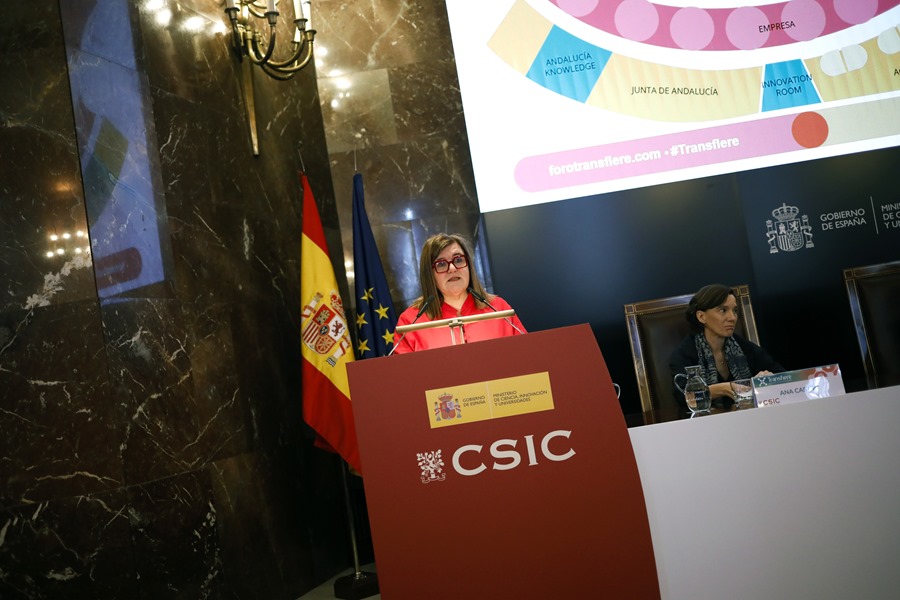Madrid (EFE).- The contribution of space technology and research to the quality of life on Earth is increasing and, on that basis, Spain has joined the “space economy” in order to benefit humanity with investments and resources allocated in this area. .
This was confirmed today by representatives of public administrations and numerous companies in the space industry Aerospace Engineering CongressIt brings together more than a hundred experts in Madrid to analyze the impact of the space sector on the Spanish economy and the new concept developed in this area, the “space economy”.
Aerospace Engineering Congress
Considering it as a set of activities and uses of resources that create value and benefit to people during space exploration and research, many speakers mentioned the many discoveries that have come from space.
Likewise, the main strengths and weaknesses of the Spanish space industry in the international context and some initiatives adopted in recent months, including the launch of the Spanish Space Agency, help strengthen Spain’s role.
Artificial muscle systems, insulin pumps, GPS technology such as satellite navigation, or increasingly complex communication systems are a legacy of technological developments developed for space exploration.
Engineers attending today’s congress confirmed their hope that more will come to improve the quality of life on Earth in the coming years.
Promote the use of Spanish in the field of science and space
Organized by the Space Group of the Spanish Engineering Institute, the Congress brings together representatives of industry, research centers, multinationals, emerging companies and Spanish administrations and public bodies.
Officials from the Ibero-American sphere and the United States have focused on promoting the use of Spanish in the scientific field.
Speakers analyzed the importance of Earth observation, communication and navigation systems projects, but some of the challenges facing the sector including space debris, upcoming manned flights and commercial exploitation of space.
An attempt by Govt
Theresa Rysko, Secretary-General for Innovation at the Ministry of Science, Innovation and Universities, has assessed the sector’s contribution to some key moments in recent history.
Among them, it highlights its contribution during the crisis caused by the epidemic and the effort made by the Spanish government in recent years to improve the sector.
Riesgo mentioned in this sense the Space Strategic Plan for Economic Recovery and Transformation (PERTE) launched by the government – which has about 4.5 billion euros -.
The Spanish Space Agency (AEE), as provided for in the new Science and Technology Law approved in 2022, was launched and had its first director for a month – aeronautical engineer Juan Carlos Cortés -.
According to him, Spain is at a “crucial” moment at the beginning of this new system and one of the main instruments of the Spanish space policy and the implementation of the main space projects due to its responsibility and long journey to ensure its contribution.
Spain and the United States resume their cooperation
Teresa Riesgo celebrated the strengthening of their technical and scientific cooperation between Spain and the States and NASA’s use of the Robledo de Chavela (Madrid) observatory, now sixty years old.
He also welcomed the implementation of new tools to develop the sector and improve cooperation, among them the space technology program launched by the Technical and Industrial Development Center and Spain’s growing role in the European Space Agency. Meaning for the Spanish economy.
Aeronautical engineer Victor Rodrigo, today vice president of the Spanish engineering company’s aerospace group, has been in the field for more than forty years.
It is in charge of analyzing how the sector has developed in the last decades, the main strengths and weaknesses of the Spanish industry or the challenges in this area, including space debris and the accumulation of waste that could cause collisions or rendering over time. Some orbits are unusable.
In reports to EFE, Rodrigo assessed the efforts already being taken by some governments, space agencies and companies to reduce this space debris, or the proliferation of legislative efforts in some countries to ensure that everything that “goes out” into space is recovered. Thus, the accumulation of space debris should be avoided.
He assured that despite the growth of recent years and the initiatives launched in recent years, Spanish participation in the international context is still limited.

